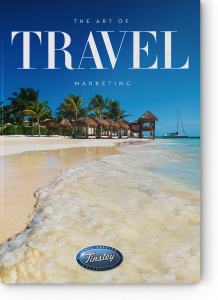The Evolution of ADVENTURE TRAVEL

By Mark Slatko

While climbing Kilimanjaro or trekking the Himalayas might not be your cup of Tibetan tea, for a growing number of young and intrepid travelers, experiences like these are just the tip of the iceberg (the floating monoliths off the coast of Newfoundland are a must-see). Then again, the definition of adventure travel has evolved, no longer indicating a millennial mindset nor the need to risk life and limb. Today, adventure seeking baby boomers are leaving their comfort zone and packing their bags for new, adrenaline pumping experiences. Scuba diving, kayaking, cycling expeditions, wildlife treks and cultural tours have all become part of the new adventure travel vernacular. More recent travel trends include “set jetting” to real-life movie locations, and girls-only tours inspired and empowered by the #metoo movement.
Age and gender aside, today’s adventure travelers are all after the same prize: off- the-beaten-path locations that offer a combination of authentic cultural experiences, sustainability, local interactions and just the right amount of physical oomph. In other words, you don’t have be Lewis or Clark to experience the adventure of a lifetime, but you will have to get off the couch.
Of course, all of this globetrotting and trekking doesn’t come without a price. Adventure travel in particular and tourism in general are taking their toll on sensitive natural areas. In fact, did you know that buying a plane ticket is the single most costly carbon decision a person can make? Enter ecotourism. While there’s no widely accepted definition of green or low-impact travel, the International Ecotourism Society defines it as responsible travel to natural areas which conserves the environment and improves the welfare of local people. This could mean opting to travel by boat, train or car, or booking rooms in LEED-certified hotels and supporting local conservation efforts. In the end, ecotourism is about personal and social responsibility. It’s about leaving a location better than you found it, and taking away nothing more than photographs and memories.



